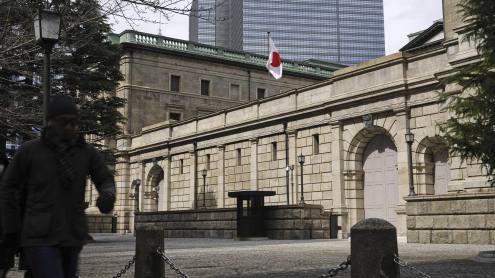In March 2012, Bank for International Settlements economist Morten Bech produced a research paper that has caught the eye of investment bankers. According to his estimates, daily volumes on the global foreign exchange (FX) markets reached about $5000bn in September 2011. That makes FX the one asset class that had higher trading volumes in 2011 than before the fall of Lehman Brothers.
The geography of FX trading is also changing, as the growing share of emerging markets in the world economy and trade pushes up activity in these countries’ currencies. From a balance sheet viewpoint, short-dated FX forward transactions will attract relatively light capital requirements under Basel III, which also makes this a priority business for the banks.
This propitious combination means banks are competing hard to win market share. Since about 80% of currency trades are still related to real economy transactions, those banks with strong corporate banking, cash management and trade finance franchises, such as Deutsche Bank, HSBC, Citi and Barclays, have a natural advantage in FX.
At the moment, the pure-play investment banks such as Goldman Sachs and Morgan Stanley, or combined investment banks and wealth managers such as Credit Suisse and UBS, are still in the hunt. A greater focus on counterparty risk since the financial crisis has created some winners and losers – institutional investors with more cautious mandates have tended to strike out pure-play investment banks as eligible FX counterparties.
Tightening margins
On the other hand, there are also banks with a strong corporate business that should in theory be able to grow their FX volumes to compete with the largest players. Foremost among those would be BNP Paribas. In a March 2012 survey of European corporate banking by consultancy Greenwich Associates, the bank scored top for market penetration in eurozone large corporate banking and European debt capital markets, and second for eurozone large corporate cash management behind Deutsche Bank.
One possibility is that FX will continue to move towards a commission-based model similar to the equity trading business, where key clients allocate a proportion of trades and fees to each investment bank depending on how important the relationship is to them. In plain vanilla forwards on the major currency pairs, pricing and bid/ask spreads are already tight and homogenous. There is slightly more room for price competition in FX options and in emerging market currencies.
But the expectation is that the deepest emerging market currencies will converge to the majors in terms of consistent pricing. While the commission-based model is not here yet, Adrian Boehler, global head of FX institutional sales at BNP Paribas, says banks must prepare for it and be confident that, even under increased regulatory pressure, their FX business can profit in such a climate. He believes research will remain a key differentiator for investment banks.
“Many clients have their own in-house research functions, but they do not have the benefit of seeing the large volumes that we do as a provider of wholesale FX services. Nor do they have the same kind of access to central bankers, officials and regulators,” says Mr Boehler.
E-trading not for everyone
While research appeals to chief investment officers for institutional investors, electronic and algorithmic trading platforms are key to winning over the hedge fund traders. Joe Norena, global chief operating officer of HSBC’s FX business, says having strength in both transactional banking and in servicing investment funds creates a healthy balance that is more resilient to changes in economic conditions. The bank is pursuing initiatives to expand its prime brokerage and electronic trading platforms.
“The bulk of business is still in payments, but the growth is in alpha-seeking FX strategies. Competition is heating up, but we already have recognised fund custodian and administration businesses, and it is much easier to build out an institutional investor offering than for new entrants to establish a global corporate and retail banking network with a local presence in emerging markets like ours,” says Mr Norena.
However, not all institutional investors necessarily make use of banks’ proprietary technology platforms. Fiduciary investors such as pension funds tend to need to show evidence of best execution, which means using multi-dealer rather than single-dealer platforms.
And the high-frequency world of electronic trading is not appropriate for long-term investors. Adrian Lee & Partners, a specialist currency manager that advises more than £5bn ($7.94bn) in institutional investor funds, uses fully disclosed single orders for each trade needed, checking pricing with each possible counterparty.
“We are not trying to get a lot of tickets done quickly like a high-frequency trader, so we tend to find that e-trading does not work better than fully disclosed voice broking, with negotiation on price where necessary. And the banks prefer this approach, because they know they will not get caught by unexpected moves resulting from us doing the same trade with other banks,” says the firm’s president and chief investment officer Adrian Lee, who developed the currency overlay process for JPMorgan in the 1990s before founding his own firm.












